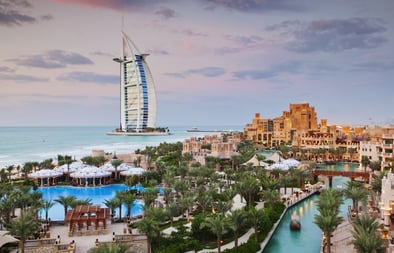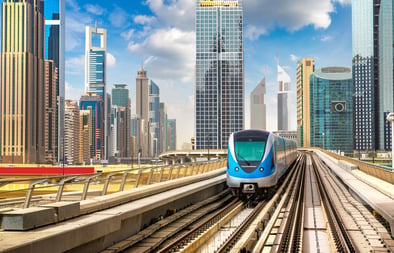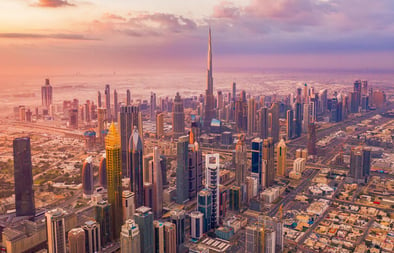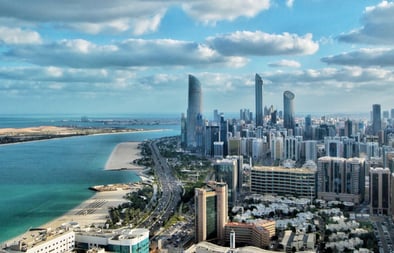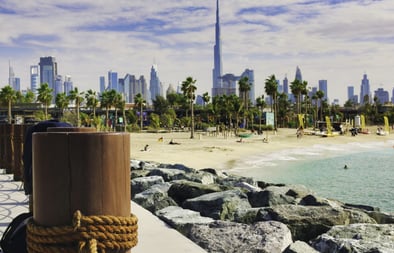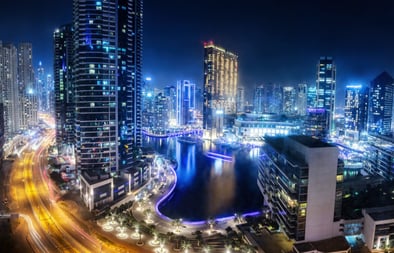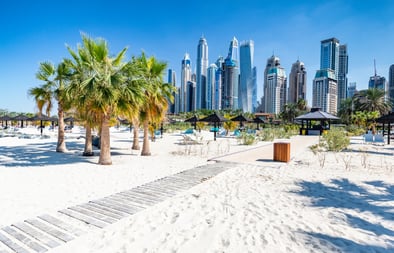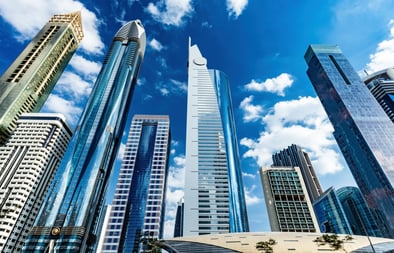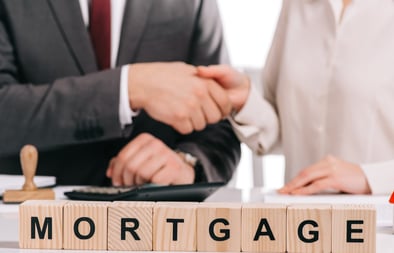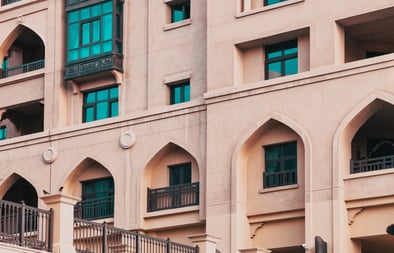Living in Dubai offers a luxurious and culturally rich lifestyle, attracting people from around the world to its vibrant cityscape. However, this sought-after lifestyle comes with significant costs. Housing can be particularly expensive, especially in prime areas like Downtown Dubai, Dubai Marina, and Palm Jumeirah, where rent and property prices are among the highest in the city. Utilities also contribute heavily to monthly expenses due to the essential use of air conditioning to cope with the intense heat.
Transportation costs, whether by public transit or owning a car, add to the overall cost of living. While the Dubai Metro, buses, and trams provide a cost-effective way to navigate the city, many residents opt for the convenience of owning a vehicle, which entails expenses such as fuel, insurance, and maintenance.
Food and dining costs in Dubai vary widely. Grocery shopping at local supermarkets offers reasonably priced options, but dining out can range from affordable street food to high-end restaurant experiences, depending on your preferences. Education and healthcare are also significant financial considerations, with international school fees and private healthcare costs adding up.
Leisure activities and shopping in Dubai cater to all budgets. The city is renowned for its extravagant malls and luxury shopping, but there are also numerous sales and promotions that make shopping more affordable. Entertainment options, from parks and beaches to cultural festivals and sporting events, offer both free and paid experiences.
Despite these substantial costs, one of the most significant financial benefits of living in Dubai is the absence of income tax, allowing residents to keep their entire salary. This tax-free advantage helps offset some of the high living expenses. Understanding these various costs is crucial for anyone planning to move to Dubai, ensuring they can manage their finances effectively and enjoy the unique and fulfilling experience the city offers.
Housing Costs
Rent and Purchase Prices
Housing stands out as a major expense in Dubai, varying greatly based on factors like location, property type, and amenities. Luxurious expat-favorite areas such as Downtown Dubai, Dubai Marina, and Palm Jumeirah boast higher rent prices, averaging between AED 80,000 to AED 120,000 per year for a one-bedroom apartment. Conversely, more budget-friendly neighborhoods like Al Barsha, Jumeirah Village Circle (JVC), and Dubai Silicon Oasis offer one-bedroom apartments ranging from AED 50,000 to AED 80,000 annually. These diverse options cater to different budget preferences, enabling residents to find suitable accommodations based on their financial plans.
Utilities
Utilities in Dubai encompass essential services like electricity, water, and cooling, which are crucial for comfortable living, especially in the city's hot climate. These utilities can substantially contribute to your monthly expenses, so it's essential to budget accordingly.
Electricity costs can vary depending on factors like the size of your apartment and your usage habits. Air conditioning is a significant component of electricity consumption in Dubai, particularly during the scorching summer months. It's common for electricity bills to be higher in the summer due to increased usage to maintain a comfortable indoor temperature.
Water charges are another aspect of utility costs. Dubai relies heavily on desalinated water, which is a resource-intensive process, contributing to water expenses. However, water conservation efforts are encouraged, and efficient usage can help reduce these costs.
Cooling charges, specifically for air conditioning, are often included in rental agreements, especially in newer buildings or developments. This means that the cost of cooling is built into your rent, providing a predictable monthly expense. However, it's crucial to clarify this detail before signing a lease to avoid any surprises in your utility bills.
Transportation Costs
Public Transport
Dubai is renowned for its efficient and modern public transport infrastructure, offering residents and visitors a seamless commuting experience. The backbone of this system is the Dubai Metro, complemented by a network of buses and trams that connect various parts of the city. To access this comprehensive public transport network, individuals use a Nol card, a convenient and versatile payment method that streamlines travel across Dubai's public transport modes.
The affordability of public transport in Dubai is another highlight, with a Nol card costing approximately AED 20, making it accessible to all. For regular commuters, the monthly expenses for using public transport typically range from AED 300 to AED 500, depending on the frequency and distance of travel. This makes public transport a cost-effective and environmentally friendly option for navigating the city, especially for those commuting to work, school, or leisure activities.
The Dubai Metro, in particular, covers most major areas of the city, providing a quick and efficient way to travel between key destinations. Its accessibility, reliability, and frequent services make it a preferred choice for many residents and tourists alike. Additionally, the integration of buses and trams into the public transport network further enhances connectivity, ensuring that commuters can reach their destinations with ease.
Car Ownership
Owning a car in Dubai is a popular choice among residents seeking convenience and flexibility in their daily commute and lifestyle. The cost of purchasing a new car in Dubai varies widely, depending on the model and brand. For instance, an economy vehicle can be acquired for around AED 40,000, while luxury models can exceed AED 200,000, catering to diverse preferences and budgets.
Moreover, Dubai offers relatively low fuel prices compared to many other global cities, with petrol typically priced at approximately AED 2.50 per liter. This affordability makes driving and maintaining a vehicle more cost-effective for residents, especially those who frequently travel longer distances.
However, the expenses associated with car ownership extend beyond the initial purchase. Additional costs such as insurance, which can range from AED 1,500 to AED 5,000 annually based on factors like coverage and vehicle type, registration fees, and regular maintenance must be considered. These ongoing expenses contribute to the overall cost of owning and operating a car in Dubai, highlighting the importance of budgeting and financial planning for car owners.
Food and Dining
Groceries
Grocery shopping in Dubai offers a range of options, from local supermarkets like Carrefour, Lulu, and Spinneys to specialty stores and high-end markets. Prices can vary significantly based on where you shop and the products you purchase.
For a single person, monthly grocery bills can range from AED 800 to AED 1,500, depending on dietary preferences and shopping habits. Families of four can expect to spend between AED 3,000 to AED 5,000 on groceries per month, factoring in the needs of children and varying meal plans.
The availability of a wide variety of products and brands caters to different budgets and tastes, making grocery shopping in Dubai a convenient and diverse experience for residents.
Dining Out
Dubai offers a vibrant and diverse dining scene, catering to various tastes and preferences. From casual street food to exquisite fine dining experiences, the city's culinary landscape is a reflection of its multicultural community. Dining out at a mid-range restaurant typically ranges from AED 50 to AED 100 per person, offering a balance between quality and affordability.
For those seeking a more luxurious dining experience, fine-dining establishments in Dubai showcase exceptional cuisines and ambiance, albeit at a higher cost. A meal at such establishments can range from AED 300 or more per person, making it ideal for special occasions or indulgent outings.
Education
Education is a paramount consideration for families residing in Dubai, given the city's diverse international community. Dubai boasts a wide selection of international schools that adhere to different educational curricula, including British, American, and International Baccalaureate (IB), catering to various educational preferences.
The annual tuition fees for international schools in Dubai can vary significantly, ranging from AED 30,000 to AED 100,000 or more. These fees are influenced by factors such as the school's reputation, facilities, and curriculum standards. Renowned schools with state-of-the-art amenities and a strong academic track record often command higher tuition fees, reflecting their commitment to providing quality education and comprehensive learning experiences.
Families exploring educational options in Dubai should carefully consider their preferences, budgetary constraints, and long-term educational goals when selecting a school for their children. Conducting thorough research, visiting schools, and understanding the curriculum and extracurricular offerings can help families make informed decisions that align with their educational priorities and aspirations.
Healthcare
Dubai offers top-notch healthcare services, although the associated costs can be significant. Health insurance is mandatory for all residents, often provided by employers. However, additional private health insurance may be required for comprehensive coverage. On average, an individual's comprehensive health insurance plan can range from AED 5,000 to AED 10,000 annually.
Consultation fees at private clinics generally range from AED 200 to AED 500 per visit. It's crucial to factor in these healthcare expenses when planning your budget in Dubai.
Leisure and Entertainment
Dubai is a vibrant hub of leisure and entertainment, offering an array of activities to cater to diverse interests. From indulging in shopping sprees and dining experiences to embarking on outdoor adventures and immersing in cultural explorations, the city ensures there's something for everyone.
For fitness enthusiasts, memberships to gyms and sports clubs in Dubai typically range from AED 200 to AED 800 per month, providing access to state-of-the-art facilities and wellness programs.
Movie buffs can enjoy the latest cinematic releases with tickets priced between AED 40 to AED 50, offering a cinematic escape for entertainment seekers.
Moreover, exploring iconic attractions like the Burj Khalifa, the world's tallest building, offers an unforgettable experience with entry fees ranging from AED 100 to AED 300. These attractions showcase Dubai's architectural marvels and cultural heritage, making them must-visit destinations for residents and tourists alike.
Shopping
Dubai's reputation as a shopping paradise is well-deserved, with its iconic malls offering a blend of luxury brands and entertainment avenues. While indulging in luxury shopping can be a splurge, Dubai's strategic shopping events like the Dubai Shopping Festival and Dubai Summer Surprises present enticing sales and promotions that cater to savvy shoppers.
These events, held annually, offer significant discounts and attractive deals across a wide range of products, making luxury shopping more accessible and affordable. With discounts on renowned brands and exclusive offers, these shopping festivals create a buzz among residents and tourists alike, transforming Dubai into a shopper's delight.
Moreover, Dubai's malls are not just about shopping; they also provide immersive experiences with entertainment options like cinemas, indoor theme parks, and gourmet dining, ensuring a wholesome and enjoyable outing for visitors of all ages.
Miscellaneous Costs
Telecommunications
Mobile phone and internet services in Dubai offer a range of options to suit different needs and preferences. Mobile phone plans, including data and calls, can be tailored to individual usage patterns and provider offerings. On average, monthly plans can range from AED 150 to AED 300, offering flexibility and affordability to users.
Similarly, internet services in Dubai provide various packages with varying speeds and features. Monthly costs for internet services typically range from AED 300 to AED 500, depending on the chosen plan and the provider's infrastructure. Higher-speed plans may incur slightly higher costs but offer faster and more reliable connectivity, ideal for households or businesses with heavy internet usage.
Taxes
Living in Dubai presents a significant financial advantage with the absence of income tax, allowing residents to retain their earnings in full. However, it's crucial to be aware of the 5% Value Added Tax (VAT) applied to most goods and services. This VAT plays a role in the overall cost of living in Dubai and should be factored into budgeting and expenditure planning for residents.
Conclusion
Living in Dubai offers an unparalleled lifestyle with a mix of luxury, convenience, and cultural experiences. However, it is essential to be aware of the various costs associated with living in this vibrant city. From housing and transportation to food and education, understanding the cost of living in Dubai will help you plan your finances better and ensure a comfortable and enjoyable stay. Whether you’re moving for work, family, or adventure, Dubai promises a unique and fulfilling experience, provided you manage your expenses wisely.
























